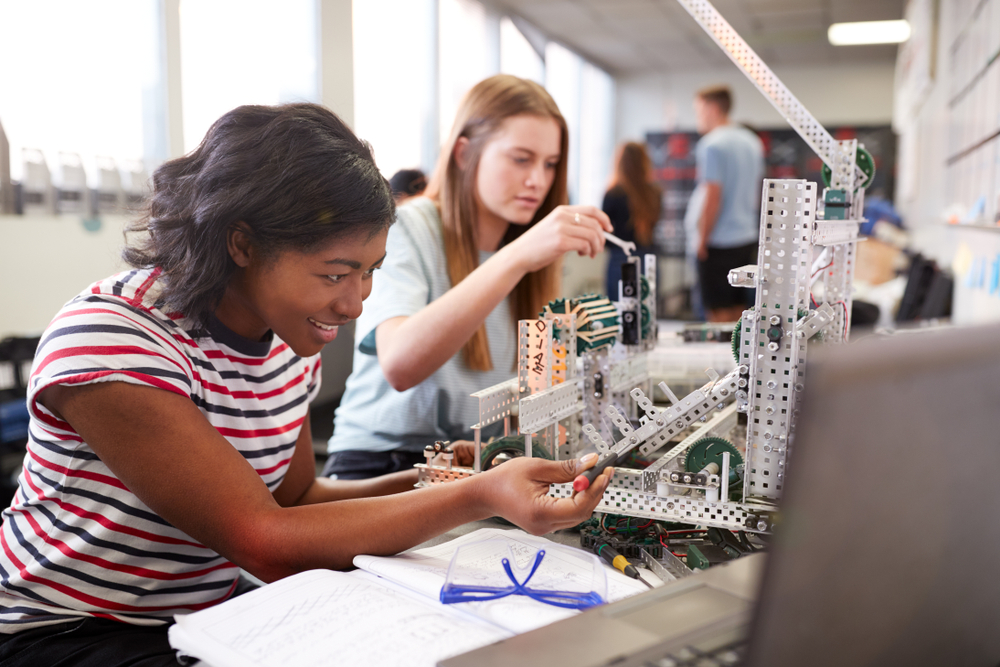Recommendations on Gender Balance in STEM Education has been published.
The report explores critical barriers to girls’ participation in STEM education and STEM learning, while also highlighting effective interventions to increase participation of girls in STEM. It points to the fact that there is no single intervention that will achieve gender equity, rather there is a requirement to support multiple interventions to effect the change required.
There are four key areas for action which build on:
• Improve equity of participation across all STEM curriculum areas/subject choices by instilling whole-school culture change, to include early years leaders and educators, /school leaders, practitioners/teachers and parents/guardians
• Provide effective support in relation to practice in STEM for early years practitioners educators and teachers
• Support equitable learner access to, and experiences of, STEM to inspire learning, foster creativity and prepare for later engagement and success
• Support a societal and cultural shift to address current barriers to gender balance in STEM.
The 16 recommendations set out in the publication will address these key areas. These recommendations were developed with a view to addressing the issues of equity of access and inclusion, rather than just gender balance. By addressing the wider diversity issue in STEM, gender balance in STEM will benefit.
A copy of the Recommendations on Gender Balance in STEM is available here
Minister for Education Norma Foley TD said:
“I am delighted to be able to launch these important recommendations which will help us to achieve a greater gender balance in STEM, on International Women’s Day. It is important for all of us in the education and STEM communities to acknowledge that there is a need to move away from seeking a change in girls’ attitudes, beliefs and behaviours, towards seeking to change structures, policies and broader representation of STEM in society, to ultimately break down the barriers to more balanced participation for all learners.
”The publication of these recommendations today is the culmination of much time and commitment given by our Gender Balance in STEM Advisory Group. The group is made up of representation from across the education and STEM stakeholders, including representation from schools, students, parents, initial teacher education, third level, STEM organisations, personal representatives and the Department of Education.
”I want to thank each group member for all their work and in particular that of the chair Margie McCarthy (SEAI and formerly SFI). Their dedication to progressing gender balance in STEM and in the development of the recommendations is to be commended.”
The recommendations follow on from A Review of Literature to Identify a Set of Effective Interventions for Addressing Gender Balance in STEM in Early Years, Primary and Post-Primary Education Settings , commissioned by the advisory group in 2019 and published in November 2020.
Chair of the Gender Balance in STEM Education Advisory Group, Margie McCarthy said:
“It was critically important to have this evidence base to inform the recommendations. Our goal was to guide national actions to ensure world-class, inclusive STEM education in Ireland for our young people. The review was the foundation to identifying that, to make a difference, a coordinated approach and actions are needed across the constituent parts including schools, teachers, families and society.”












Comments